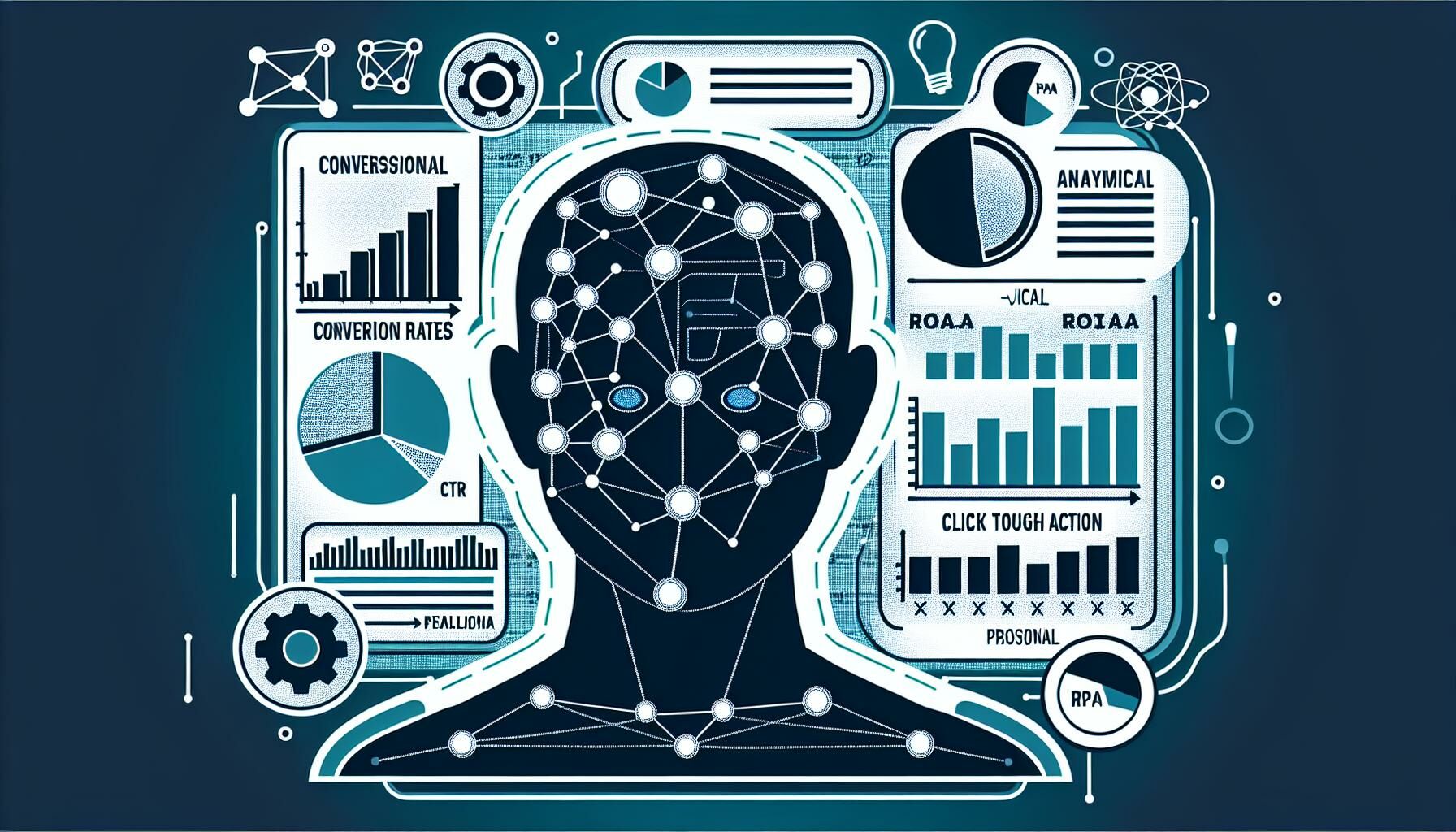Leveraging AI and machine learning can revolutionise your campaigns

The current landscape of digital technology is marked by the struggle to achieve visibility for your business online and target the appropriate audience amidst a wave of competition. Search engine marketing (SEM) has pivotal strategies that will allow a business to achieve this but with ongoing advancements in artificial intelligence (AI) and machine learning, more marketers have opportunities for maximum growth. These advancements are revolutionising SEM and will help enhance the efficiency and effectiveness of business campaigns significantly.
AI-enhanced SEM tools stand at the vanguard of this revolution, utilizing advanced algorithms and machine learning capabilities to transform every facet of search engine marketing comprehensively. From automating the process of keyword research to refining advertisement creation, and from optimising bid management to improving performance analysis, these tools furnish marketers with the capacity to attain exceptional outcomes. They transcend conventional tool functionality; they act as catalysts for change, facilitating precise targeting and real-time modifications previously considered unattainable.
Exploring further into AI and machine learning within SEM reveals that these technologies are not only augmenting existing methodologies but also fostering novel strategies. Marketers harnessing these tools gain the ability to predict market trends accurately, comprehend consumer behaviour with enhanced precision, and implement campaigns that are both cost-efficient and high-impact. The advent of AI-driven SEM marks a transformative era in digital advertising, reshaping the landscape in ways that are beginning to unfold.
Leveraging AI and machine learning in SEM

The Role of AI in search engine marketing
AI revolutionises SEM by making complex tasks simple. It sifts through vast datasets to unearth insights beyond human capability. By fine-tuning keyword research and bid optimisation, AI ensures ads hit the mark every time. It doesn’t stop there; AI tailors ad content for individual users, predicting trends and making swift, informed decisions. This not only sharpens the marketer’s toolbox but also enhances the consumer’s journey, significantly boosting conversion rates. With AI in SEM, ads become more than just noise; they’re strategic moves in the digital marketplace.
Benefits of Using Machine Learning in SEM
Although there is some apprehension from some, it is important to understand that there are benefits to incorporating machine learning into your SEM strategy.
Benefits of machine learning in SEM
| Benefit | Description |
|---|---|
| Enhanced targeting accuracy | By analyzing user data, machine learning identifies the most relevant audience segments, improving the precision of targeting efforts. |
| Optimised bid adjustments | Machine learning algorithms navigate the volatile bidding landscape, making real-time adjustments to maximize ROI. |
| Improved ad performance | It analyzes what works best for ad performance, from copy to design, ensuring optimal engagement and conversion rates. |
| Fraud detection and protection | Machine learning acts as a guardian against click fraud, safeguarding advertising budgets from dishonest practices by spotting and mitigating fraudulent activities. |
This integration offers strategic advantages that will enable marketers to be more effective in this competitive digital landscape. However, by implementing machine learning, businesses can not only optimise their advertising efforts but also protect their investments. This way, every dollar spent is an investment towards achieving tangible results.
Incorporating AI and machine learning technologies in SEM campaigns
Choosing the right AI tools is the first step to SEM success. The ideal tool offers a comprehensive suite for managing keywords, bids, ads, and performance, fitting seamlessly into your marketing stack. On the machine learning front, clarity in objectives paves the way for impactful integration. Whether aiming for higher CTRs or lower CPA, leveraging historical data and machine learning algorithms to predict and adjust is key. Constant experimentation and analysis refine strategies, ensuring SEM campaigns not only meet but exceed expectations. In the rapidly evolving world of SEM, AI and machine learning are not just options but necessities.
Strategies for successful implementation

In the evolving landscape of search engine marketing (SEM), leveraging AI and machine learning can set a campaign apart, maximising efficiency and returns. Below are strategies detailing how to integrate these advanced technologies effectively.
Choosing the right AI tools for SEM
In the realm of SEM, it is critical to select AI tools that are congruent with your marketing objectives. The market is replete with a myriad of options, each purporting to transform your SEM strategies radically. Nonetheless, not every tool offers equal value. It is advisable to opt for tools that provide an extensive analysis of keywords, insights into competitors, and capabilities for automated bid management. These functionalities ensure that your campaigns are both precisely targeted and economically efficient. Furthermore, the implementation of AI-driven tools for content optimisation can notably increase ad relevance, thereby enhancing click-through rates (CTR) and reducing cost per acquisition (CPA).
Conducting trials with various tools before finalizing a decision is imperative to identify a solution that is specifically catered to your requirements. Platforms offering advanced analytics should be given priority as they afford actionable insights critical for ongoing refinement. It is important to recognize that the effective use of AI in SEM transcends merely selecting cutting-edge technology; it encompasses the strategic application of these tools to continually refine and advance marketing strategies over time.
Integrating machine learning algorithms into SEM practices
Machine learning algorithms come in as a cornerstone in the advancement of search engine marketing (SEM) strategies. With this, businesses can gain insights into consumer behaviour and preferences and to capitalise on this, it will be important to integrate it.
Machine learning algorithms constitute a cornerstone in the advancement of Search Engine Marketing (SEM) strategies, offering unprecedented insights into consumer behaviour and preferences. To capitalize on this opportunity, it is essential to integrate machine learning SEM technologies, emphasizing predictive analytics. Such an approach enables a deeper understanding of the interactions between different demographics and your advertisements, thereby improving audience segmentation.
Moreover, machine learning capabilities enable the automation of the most labour-intensive tasks within SEM, including bid management and A/B testing. This automation not only conserves precious time but also markedly elevates the efficiency of marketing campaigns. By adapting SEM practices to incorporate these algorithms, advertisements are perpetually optimised for performance, obviating the need for continuous manual intervention.
The fusion of machine learning’s predictive analytics with AI-enabled creative optimisation represents a pivotal evolution in Search Engine Marketing (SEM) strategies. This integrative approach allows for the real-time modification of advertisement components, including imagery and text, to better match user intentions, thereby markedly enhancing campaign outcomes.
Employing machine learning and AI within SEM goes beyond simply embracing cutting-edge technology; it denotes an ongoing dedication to a cycle of testing, education, and improvement. This dedication positions marketing endeavours at the vanguard of innovation during a period marked by rapid digital change.
Measuring success and ROI

Utilising metrics and KPIs to evaluate AI and machine learning impact
The integration of Artificial Intelligence (AI) and Machine Learning (ML) into Search Engine Marketing (SEM) strategies has profoundly altered the approaches utilized by digital marketing experts.
- For an accurate assessment of the effectiveness of these advanced SEM technologies, focusing on relevant metrics and Key Performance Indicators (KPIs) is essential.
- These criteria provide a transparent evaluation of the performance enhancements brought about by AI and ML.
- They enable organizations to measure success and calculate Return on Investment (ROI) with greater accuracy.
Primarily, conversion rates emerge as a crucial metric. They serve as direct indicators of the efficiency of AI-enhanced ad targeting and bid management strategies, reflecting whether such technological advancements result in an increased proportion of visitors performing desired actions, such as completing purchases or registering for newsletters.
Cost per Acquisition (CPA) represents another fundamental metric. It illustrates the effectiveness with which AI and ML tools manage advertising expenditures to secure new clientele. Reduced CPA values indicate that these advanced SEM technologies are not only pinpointing the appropriate audience but also achieving this in a financially prudent manner.
Click-through rates (CTR) hold significant importance as well. An elevated CTR signifies that the predictive analytics and automated content optimisation facilitated by AI are effectively engaging the target demographic, thereby increasing their propensity to interact with advertisements.
Moreover, Return on Ad Spend (ROAS) is an essential measure of overall operational efficacy. It quantifies the revenue generated for every unit of currency expended on SEM initiatives. An enhancement in ROAS denotes that integrating AI and ML into SEM strategies is yielding more lucrative campaigns.
Through meticulous observation of these metrics, organizations can comprehensively assess the impact of Artificial Intelligence (AI) and Machine Learning (ML) on their Search Engine Marketing (SEM) strategies. This analysis highlights not only the achievement of set goals but also identifies potential areas for enhancement. As AI and ML evolve, securing a competitive advantage in SEM requires ongoing vigilance and an adaptable methodology informed by data-driven insights.
Utilising machine learning and AI is pretty important in the pursuit of finding success in digital marketing. However, SEM is just one aspect of marketing that stands shoulder to shoulder with methods like SEO. Knowing the difference between these two will help determine which one to use or utilise together to have a more prosperous digital marketing campaign.
Latest Thailand News
Follow The Thaiger on Google News:


























